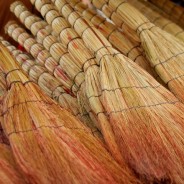Writing and Healing Idea #37: A Conversation with a Companion
Imagine that you receive an invitation: You and a companion of your choosing are invited to spend a day together—in a place of your choosing. Because this is an imagined invitation the sky is the limit. You may choose any companion. A person living or dead. A person whom you know well or a person you’ve never had an opportunity to meet but have always wished that you could. A poet? A musician? Martin Luther King? For that matter, you may choose to bring a character who exists only in the world of the imagination. The old woman in the cottage? Gandalf from The Lord of the Rings? Dumbledore? You may choose any companion at all. You may choose any place. You may choose any activity, or any series of activities. And then at some point during the day, allow it to happen that the two of you engage in a conversation—the kind of conversation you have always longed to have, and realize that you now can have with this companion. Close your eyes. Listen closely. You and your companion are beginning a conversation. Perhaps your companion speaks first. Or perhaps you speak first and then your companion speaks. What is it that your companion says? And how do you respond? And then what happens next? You can, if you like, write the conversation down— This is also the kind of conversation that you can come back to again. You can come back to it on different days. This can become, if you like, a series of conversations over...
read more
